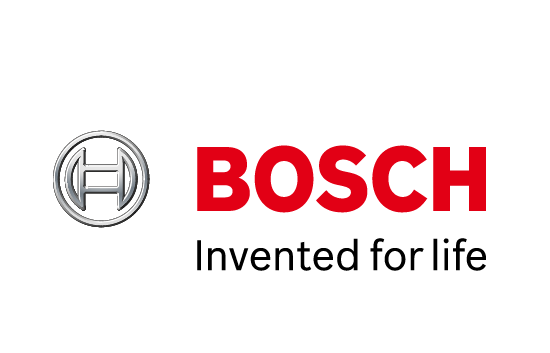HOW BOSCH & CHEP ARE SAVING FIVE OLYMPIC POOLS OF WATER EVERY YEAR
Not just water, Bosch Indias mobility plant in Bidadi saves resources that would otherwise have generated 300 truckloads of waste causing 58 truck-trips around the planet. Pioneering regenerative supply chains - YouTube The latest sustainability practice at Bosch India is powered by CHEP, a global pallet and container pooling service provider.

- Country:
- India
Not just water, Bosch India’s mobility plant in Bidadi saves resources that would otherwise have generated 300 truckloads of waste causing 58 truck-trips around the planet. At a time when organizations are looking at industry 4.0 as their sustainability objectives, Bosch India has redefined the otherwise contemporary definition through its partnership with CHEP. At its plant in Bidadi, Bosch India’s latest drive has resulted in saving water to the tune of over five Olympic Swimming pools. A 50-metre deep Olympic-size swimming pool holds 2,500 cubic meters of water, with this the savings at the Bosch plant is 12,705 cubic meters. Bosch India through CHEP’s Packaging Solutions has saved 2,435 tons of carbon dioxide emission and 2,701 tons of waste. For the curious, this is equivalent of 300 truckloads of waste needing 58 truck-trips around the world. Bosch India that recently received an Environmental Certificate for Excellence in Sustainability from CHEP also leverages from mobility, industry 4.0 solutions and carbon-neutrality technologies. The savings also enables Bosch to take proactive steps in furthering efficient, flexible, and sustainable manufacturing in India. Besides boosting competitiveness, such steps enable enterprises to meet volatile supply-demand change.
The impact of sustainable thinking not only generates a ripple effect among the local industries but also on employees. Founded in 1951, Bosch India employs over 31,000 employees who work from its 16 manufacturing sites and seven application and development centers. Besides being a leading supplier of technology and services. Bosch also areas sectors such as Mobility Solutions, Industrial Technology, Consumer Goods, and Energy & Building Technology. Pioneering regenerative supply chains - YouTube The latest sustainability practice at Bosch India is powered by CHEP, a global pallet and container pooling service provider. In an environment where sustainability and mobility are equally crucial for industries; CHEP, the architect of Bosch’s recent sustainability success, enables organizations to do more with a pragmatic business model. The CHEP pallets, crates and containers form the invisible back - bone of the global supply chain. Sharing and reusing of pallets and containers not only enables the world’s biggest brands transport goods efficiently but also sustainably which is the need of the hour. Following the principles of the circular economy, CHEP platforms are rented to customers and then collected, inspected, repaired, and sent back into the supply chain. This establishes a sustainable and efficient supply chain by reducing demand on natural resources and waste whilst releasing its customers from the pallet management tasks. The collaboration between CHEP and Bosch has broken the link between consumption and harm to the environment with society putting less strain on natural resources. CHEP uses Life Cycle Analysis (LCA) to fully comprehend their products’ environmental footprint and quantify the environmental benefits of the system through a commissioned third-party independent expert, RCD Environment. The LCA is a standardized, science-based tool for evaluating the environmental impact of a product through its life cycle, including extraction and processing of the raw materials, manufacturing, distribution, use, recycling, and final disposal of the product. CHEP pallets and the returnable packaging solutions including crates and inserts have the lowest environmental impact in all categories when compared to market alternatives. Re-usable plastic containers and crates offer protection from potential damage during transportation and can be reused. Reusable plastic containers also enable higher cube utilization of ocean containers as they allow for a higher stacking height.
A World Bank estimate finds feeding a planet of nine billion by 2050 will result in a 15% increase in water withdrawals. The situation is alarming given water for industrial and power generation has consistently grown at an average rate of 42% per annum. Water scarcity has already disrupted manufacturing industries and supply-chains across the globe. Thermal generation in South Africa and mining disruptions in Australia owing to water scarcity are recent examples. Another cause for concern in India is an estimate from the Central Pollution Control Board which suggests the industrial water consumption as having increased from 67 billion cubic meters in 1999 to projections of 228 cubic meters in 2025. These statistics highlight the need for industries to conserve water. The Bosch-CHEP partnership is not only a sustainable strategy but also a smart-step in the right direction. To know more about us, login to our website here Click here to check us out on LinkedIn Disclaimer: Content produced by ET Grey cell.
(This story has not been edited by Devdiscourse staff and is auto-generated from a syndicated feed.)
ALSO READ
World Bank projects Indian economy to grow at 7.5% in 2024
World Bank projects India's growth to reach 7.6% in FY 23-24
World Bank projects India's growth to reach 7.5 % in FY 23-24
About 10 million people at risk of slipping into poverty in Pakistan: World Bank
World Bank, ARTF support financing for micro and small enterprises in Afghanistan










